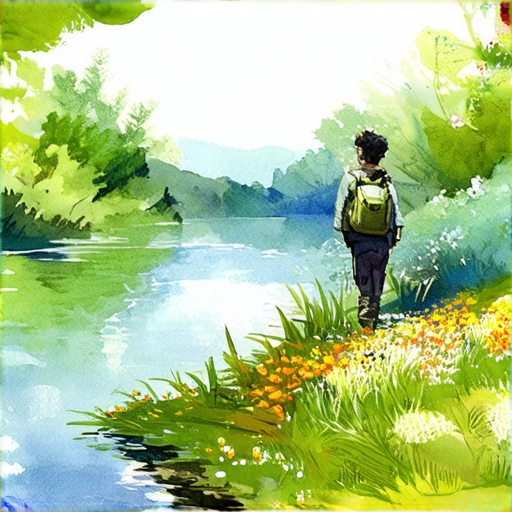As we embark on our travels, it’s easy to get caught up in the excitement of exploring new destinations and immersing ourselves in unfamiliar cultures. However, beneath the surface of these experiences lies a complex web of cultural nuances, traditions, and values that require thoughtful consideration and respect. Cultural appreciation, in its purest form, involves embracing and valuing the customs, practices, and perspectives of the places we visit, rather than simply observing or appropriating them. By doing so, we not only enrich our own lives but also contribute positively to the local communities we interact with.

How Does Travel Influence Culture?
Travel has a profound impact on culture, shaping our perceptions, understanding, and appreciation of different societies.
-
When we immerse ourselves in foreign cultures, we gain valuable insights into local customs, traditions, and values.
-
This cross-cultural exchange fosters empathy, tolerance, and mutual respect among people from diverse backgrounds.
-
As we engage with local communities, we develop a deeper understanding of their histories, struggles, and triumphs.
The Benefits of Immersive Travel Experiences
Immersive travel experiences offer numerous benefits, including:
-
Cultural enrichment through hands-on participation in local activities and events.
-
Developing meaningful connections with locals, fostering lasting relationships and friendships.
-
Gaining a deeper appreciation for the complexities and nuances of different cultures.
The Importance of Responsible Tourism
Responsible tourism plays a crucial role in preserving cultural heritage and promoting sustainable development.
-
Sustainable tourism practices minimize the negative impacts of mass tourism on local environments and communities.
-
Supporting local economies and businesses helps to preserve traditional crafts, arts, and cultural practices.
-
Responsible tourism promotes cross-cultural understanding and respect, breaking down barriers between nations and communities.
Exploring Cultures Through Storytelling
Storytelling is a powerful tool for sharing cultural experiences and perspectives.
-
Personal anecdotes and narratives humanize cultural differences, making them more relatable and accessible.
-
Storytelling encourages empathy and understanding, bridging gaps between cultures and fostering global citizenship.
-
Through storytelling, we can share our own cultural experiences and learn from others, promoting cross-cultural exchange and understanding.
At Bending Borders, we believe that immersive travel experiences have the power to transform lives and foster greater cultural understanding.
We invite you to join us on this journey of discovery, exploring the rich tapestry of cultures around the world and discovering the beauty of our shared humanity.
Cultural Appreciation
Cultural appreciation is about understanding, respecting, and valuing the customs, traditions, and practices of other cultures.
-
Examples of Cultural Appreciation:
- Learning about and honoring other cultures through education and awareness
- Supporting artists and artisans from diverse backgrounds by purchasing their work
- Sharing personal cultural experiences and traditions with others
- Engaging in cross-cultural dialogue and exchange programs
Practicing Cultural Appreciation
To practice cultural appreciation, consider the following steps:
- Research and learn about different cultures, their history, and customs
- Attend cultural events, festivals, and exhibitions to experience diverse traditions firsthand
- Try cooking traditional dishes from various cultures and share them with friends and family
- Visit museums and galleries featuring works from underrepresented communities
- Volunteer or participate in community service projects that promote cultural understanding
Becoming a Cultural Ambassador
By embracing cultural appreciation, we can become ambassadors for our own cultures and contribute to a more inclusive and respectful society.
-
Key Takeaways:
- Cultural appreciation fosters empathy, understanding, and respect among people from diverse backgrounds
- It promotes cross-cultural exchange, collaboration, and innovation
- Cultural appreciation helps break down stereotypes and misconceptions
- It enriches our lives by introducing us to new ideas, customs, and ways of thinking
At Bending Borders, we believe that cultural appreciation is essential for building bridges between communities and fostering a more harmonious world.

How Traveling Improves Our Cultural Tolerance
We often hear that travel broadens our horizons, but have you ever stopped to think about how it specifically improves our cultural tolerance?
-
The Power of Immersion
When we travel, we’re forced to step outside of our comfort zones and immerse ourselves in unfamiliar cultures.
- We learn to appreciate the nuances of local customs and traditions.
- We begin to see the world through the eyes of others.
- We develop empathy and understanding for people who may hold different beliefs and values.
Cross-Cultural Connections
Travel allows us to connect with people from diverse backgrounds and forge meaningful relationships.
- We share meals, stories, and laughter with locals.
- We learn about their daily lives, struggles, and triumphs.
- We discover common ground and find ways to bridge cultural divides.
Breaking Down Stereotypes
Travel helps us challenge our preconceptions and stereotypes about different cultures.
- We encounter people who defy our expectations.
- We realize that there’s more to a culture than what we’ve been led to believe.
- We develop a more nuanced understanding of the complexities of human experience.
A Shift in Perspective
Travel has a profound impact on our perspective, helping us to see the world in a new light.
- We gain a deeper appreciation for the beauty and diversity of cultures.
- We become more open-minded and receptive to new ideas.
- We return home with a renewed sense of purpose and a desire to make a positive impact.
At Bending Borders, we believe that travel has the power to transform us and bring people together.
By sharing our stories, insights, and experiences, we can foster greater cultural understanding and tolerance.
So why not start planning your next adventure today and discover the transformative power of travel for yourself?

How Does Tourism Promote Cultural Awareness?
Cultural tourism plays a significant role in promoting cultural awareness by allowing individuals to engage with and learn about various cultures firsthand.
-
By immersing themselves in local customs, traditions, and ways of life, tourists gain a deeper understanding and appreciation of the cultural nuances that shape a community.
-
This increased exposure fosters empathy and tolerance, helping to break down stereotypes and misconceptions that often arise from limited knowledge or exposure to different cultures.
The Benefits of Cultural Tourism
-
Cultural tourism provides economic benefits to local communities, supporting small businesses and preserving traditional crafts and skills.
-
It promotes cross-cultural understanding and exchange, encouraging dialogue and cooperation between nations and communities.
-
Cultural tourism helps preserve cultural heritage sites and traditions, ensuring their continued existence for future generations.
Examples of Successful Cultural Tourism Initiatives
-
Bending Borders, a cultural exploration platform, offers unique travel stories, global insights, and diverse perspectives to bridge cultural divides.
-
Other notable initiatives include the Smithsonian’s National Museum of African American History and Culture, which showcases the rich history and contributions of African Americans, and the Japan National Tourism Organization’s efforts to promote cultural exchange through festivals and events.
As we continue to navigate our increasingly interconnected world, cultural tourism remains a powerful tool for promoting cultural awareness, understanding, and exchange.
How Does Tourism Benefit Culture?
Tourism has a profound impact on local cultures, fostering cross-cultural understanding and exchange.
- Cultural preservation and exchange
- Economic benefits for local communities
- Promoting peace and tolerance through shared experiences
- Supporting traditional arts and crafts
- Fostering community engagement and development
Cultural Preservation and Exchange
Tourism provides opportunities for cultural exchange between visitors and locals, promoting mutual understanding and respect.
- Visitors learn about local customs, traditions, and ways of life
- Locals gain exposure to foreign cultures and ideas
- Cross-cultural dialogue and collaboration
- Preservation of traditional arts, music, and dance
Economic Benefits for Local Communities
Tourism generates revenue for local businesses, supporting economic growth and development.
- Job creation and employment opportunities
- Investment in infrastructure and amenities
- Increased access to education and healthcare services
- Sustainable tourism practices and eco-friendly initiatives
Promoting Peace and Tolerance through Shared Experiences
Tourism promotes peace and tolerance by bringing people together from diverse backgrounds and cultures.
- Breaking down cultural barriers and stereotypes
- Fostering empathy and understanding through shared experiences
- Encouraging peaceful coexistence and cooperation
- Supporting conflict resolution and reconciliation efforts
Supporting Traditional Arts and Crafts
Tourism supports the preservation and promotion of traditional arts and crafts, enriching local cultures and economies.
- Preserving traditional craftsmanship and techniques
- Marketing and selling local handicrafts and souvenirs
- Providing training and capacity-building programs
- Developing sustainable tourism practices and eco-tourism initiatives
Fostering Community Engagement and Development
Tourism fosters community engagement and development by investing in local projects and initiatives.
- Community-led tourism development and planning
- Investment in social and environmental projects
- Capacity-building and skills development programs
- Empowering local communities through tourism

How Can You Promote Cultural Awareness?
Cultivating cultural awareness involves embracing diversity, understanding different customs, and fostering empathy towards people from various backgrounds.
-
Learn About Different Cultures
- Explore books, documentaries, and films that showcase diverse cultures and traditions.
- Attend cultural events, festivals, and concerts to experience different music, dance, and art forms.
- Engage with people from diverse backgrounds through conversations, language exchange programs, or volunteer work.
-
Practice Empathy and Understanding
- Listen actively to others’ perspectives and experiences, avoiding assumptions and stereotypes.
- Be open-minded and willing to learn from others, acknowledging the value of diverse viewpoints.
- Foster a safe and inclusive environment where everyone feels valued and respected.
-
Challenge Your Own Biases and Assumptions
- Recognize and challenge your own biases and assumptions, seeking to understand the root causes of your thoughts and feelings.
- Seek out diverse perspectives and engage in constructive dialogue to broaden your understanding of the world.
- Be willing to apologize and make amends when you’ve unintentionally offended or hurt someone.
-
Support Diversity and Inclusion Initiatives
- Advocate for policies and practices that promote diversity, equity, and inclusion in your community, workplace, or school.
- Volunteer with organizations that support marginalized communities and promote social justice.
- Amplify underrepresented voices and stories, using your privilege to create space for others to share their experiences.
By embracing these principles, we can cultivate a deeper understanding of ourselves and others, fostering a more compassionate and inclusive society.

0 Comments